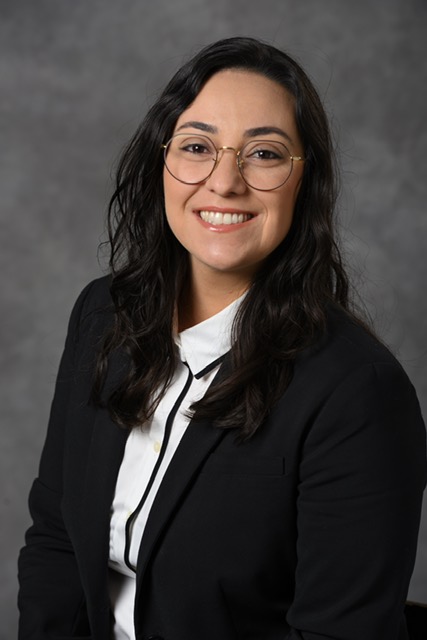
Carolina de Aguiar Ferreira, PhD
As a young girl in Brazil, while her friends played with dolls, Carolina de Aguiar Ferreira had other interests.
“I always wanted to be a scientist,” she said. At the age of 18, after she enrolled as a pharmacy student at the Federal University of Minas Gerais in Brazil, she knocked on a door that turned out to be a radiation lab and found her calling.
Now, as a recently hired assistant professor in the Colleges of Human Medicine and Engineering, Ferreira, PhD, is opening her own lab to study promising new therapies that hunt down cancer cells and kill them with radioactive isotopes.
While her research is still in the early stages, it holds the potential not only to treat many types of metastatic cancers that have spread throughout the body, but to cure them, Ferreira said.
“The biggest problem today is, how do we treat metastasis?” she said.
Unlike other kinds of cancer treatments, the radiopharmaceutical therapy she is studying does not use an external radiation beam directed at a tumor in the body. Instead, a compound is injected into the body to find cancer cells wherever they have spread. A radioactive isotope is attached to that compound, targeting only the cancer cells. The approach called “theragnostics” combines diagnosis and therapy.
Ferreira was recruited to MSU through the Global Impact Initiative, an effort to recruit new faculty in research thrusts that support MSU 2030, the University’s strategic plan.
“I’m so pleased to have Dr. Ferreira join MSU,” said Doug Gage, PhD, vice president for Research and Innovation. “Her research complements the work being done both on the East Lansing campus and in Grand Rapids around the use of rare isotopes and imaging technologies that only Michigan State has available. Cancer diagnosis and treatments are top priorities in our sustainable health goal and she will be able to contribute right away.”
Read the full story on Aguiar Ferreira's research via the College of Human Medicine website.
